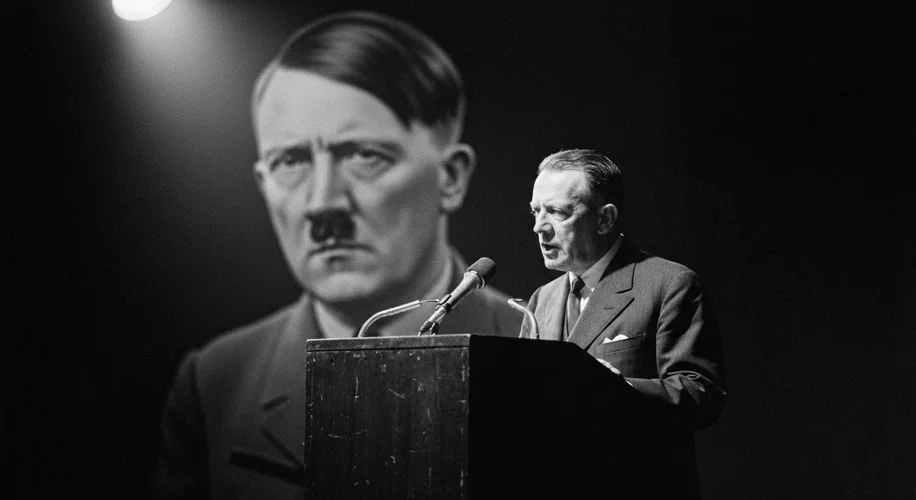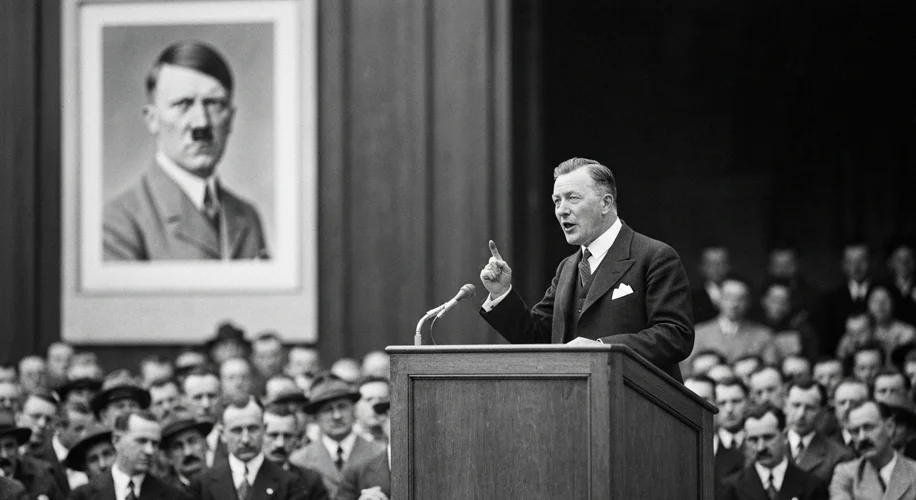In the annals of industrial titans, few figures cast as long or as complicated a shadow as Henry Ford. The architect of the assembly line and the Model T, Ford revolutionized American manufacturing and put the world on wheels. Yet, beneath the veneer of innovation and populist appeal lay a deeply troubling undercurrent: Ford’s documented antisemitism and his perplexing, even sympathetic, views toward Nazi Germany.
This duality is not merely a footnote in the life of a complex man; it’s a stark reminder of how deeply personal beliefs can intertwine with corporate responsibility and national interests, especially during times of global crisis. As the world hurtled towards World War II, Ford’s Ford Motor Company stood as a colossus of American industry, a vital engine for the Allied war effort. But how could the man who supplied the Allies with vital armaments also harbor admiration for the very regime they were fighting?
The story begins not with tanks and bombers, but with ink and paper. In the early 1920s, Ford’s newspaper, The Dearborn Independent, published a series of articles titled “The International Jew: The World’s Foremost Problem.” These articles, later compiled into a book, peddled virulently antisemitic conspiracy theories, blaming Jews for everything from wars to economic depressions. The book became a bestseller, not just in America, but, more chillingly, in Germany, where it was lauded by Adolf Hitler himself. Hitler referred to Ford as an inspiration, even displaying a portrait of Ford in his office.

Ford’s views weren’t a fleeting phase. He continued to espouse these hateful ideologies throughout the 1930s. His personal connection to Nazi Germany was further cemented when, in 1938, the German consulate in Detroit awarded him the Grand Cross of the German Eagle, the highest medal a foreigner could receive from Nazi Germany. Ford, remarkably, accepted it, a gesture that sent shockwaves through many who already viewed his sentiments with alarm.
The outbreak of World War II in 1939 created an almost unbelievable paradox. While Ford’s personal ideology seemed aligned with the enemies of democracy, his company was poised to become a critical player in America’s fight for survival. Ford Motor Company, under the guidance of Ford’s son Edsel, shifted its focus dramatically. The Willow Run plant, a marvel of wartime industrial might, was retooled to produce the B-24 Liberator bomber, a heavy strategic aircraft vital to the Allied bombing campaign against Germany. At its peak, Willow Run churned out a bomber every hour, a testament to Ford’s manufacturing genius, now directed toward the Allied cause.

This stark contrast—the antisemite receiving a Nazi medal, yet his factories building the tools to defeat Nazism—raises profound questions. Was Ford’s embrace of Nazism a genuine ideological commitment, or was it a misguided, albeit deeply offensive, expression of his isolationist and nativist leanings? Some historians argue that Ford, a staunch isolationist, saw Nazism as a bulwark against communism and perhaps even as a force that could restore order to a world he perceived as chaotic. His antisemitism, in this view, was a symptom of a broader distrust of international finance and globalism, which he conflated with Jewish influence.
Others point to the sheer hypocrisy of his actions. By accepting the Nazi medal while simultaneously operating a business that would contribute significantly to the Allied victory, Ford presented a deeply problematic image. Edsel Ford, it is widely acknowledged, bore the brunt of managing the company during this period, often working to distance the company from his father’s more extreme views, though his efforts were hampered by Henry’s ultimate control and influence.
The impact of Ford Motor Company’s wartime production cannot be overstated. The B-24 Liberators rolled off the Willow Run assembly line were instrumental in countless campaigns, from the bombing of German industrial centers to the Pacific theater. Ford also produced Jeeps, trucks, tanks, and aircraft engines, making the company an indispensable pillar of the American war machine.

Ultimately, Henry Ford’s relationship with Nazi Germany remains a disquieting chapter in American industrial history. It highlights the complex interplay between personal convictions, corporate power, and the national imperative. While Ford the industrialist was crucial to America’s victory in World War II, Ford the man remained a figure whose deeply ingrained prejudices and disturbing admiration for a tyrannical regime cannot be overlooked. His legacy is a potent, and unsettling, reminder that even those who shape the modern world can harbor the darkest of shadows.
In the end, America’s industrial might, fueled by companies like Ford, proved decisive. Yet, the story of Henry Ford serves as a cautionary tale, a testament to the enduring struggle to reconcile the innovations of genius with the moral responsibilities of leadership, especially when confronted by the chilling realities of ideological extremism.

